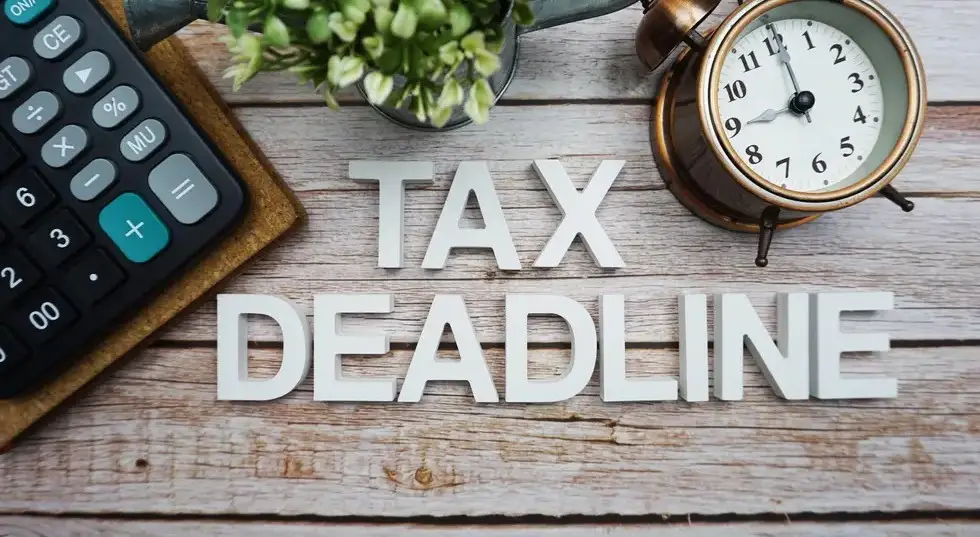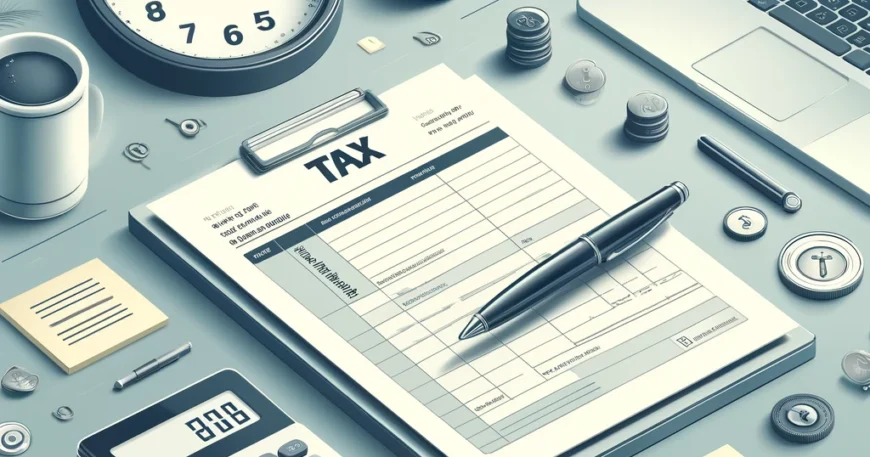Tax Deadlines for 2024 and 2025: A Complete Guide to IRS Tax Filing Dates
When it comes to taxes, one of the most crucial things you need to stay on top of is the tax deadline. Whether you’re filing for the first time or are a seasoned tax filer, understanding the tax deadlines is essential to avoid penalties or late fees. This blog post will guide you through the tax deadlines for 2024 and 2025, including the IRS tax deadlines and key filing dates.
What Are Tax Deadlines and Why Are They Important?
A tax deadline refers to the last day you can submit your tax return to the IRS without incurring penalties or late fees. Missing a tax deadline can lead to significant financial consequences, including fines, interest, or even legal repercussions. Tax deadlines vary every year based on holidays, weekends, and other factors, making it crucial to stay updated on the IRS’s official deadlines.
Tax Deadlines 2024: Important Dates to Keep in Mind
The tax deadline for 2024 is fast approaching, and it’s important to be prepared. Here’s what you need to know about the IRS tax deadline for 2024:
- Tax Filing Deadline: The final deadline to file your 2024 taxes is April 15, 2025, unless you file for an extension.
- Tax Payment Deadline: If you owe taxes, payments are due by April 15, 2025, to avoid penalties and interest.
Filing an Extension for Tax Deadlines 2024
If you need more time to file your taxes, the IRS allows you to apply for an extension. However, an extension only extends the filing deadline, not the payment deadline. Your extended tax filing deadline will be October 15, 2025. Keep in mind, that even if you file for an extension, you will still need to pay any taxes owed by the original deadline of April 15, 2025.

Tax Deadlines 2025: What You Need to Know
As we look ahead to the tax year 2025, it’s essential to be aware of the important IRS tax deadlines. Here’s an overview of the major filing dates for 2025:
- Tax Filing Deadline: The primary tax deadline for 2025 will be April 15, 2026, unless you request an extension.
- Tax Payment Deadline: Payments for taxes owed will also be due on April 15, 2026.
Requesting an Extension for Tax Deadlines 2025
Similar to the 2024 tax deadline, you can request an extension for filing your taxes in 2025. The extended deadline to file your taxes will be October 15, 2026. However, remember that you still need to pay any taxes owed by April 15, 2026, even if you file for an extension.
IRS Tax Deadline: What You Need to Know for Both 2024 and 2025
The IRS is strict about adhering to deadlines. Whether you’re filing for 2024 or 2025, understanding the IRS’s role in tax deadlines is essential. If you miss the deadline, the IRS will impose penalties and interest. Here’s a quick rundown of the IRS’s tax deadline rules:
- Penalties for Late Filing: If you file your taxes after the deadline, you’ll face a 5% penalty for each month the tax return is late, up to 25% of your total tax due.
- Interest on Unpaid Taxes: In addition to penalties, the IRS charges interest on any unpaid taxes. This interest is typically the federal short-term rate plus 3%.
- Filing an Extension: Filing an extension gives you more time, but you must pay any taxes due by the original deadline to avoid penalties.
When Is the Tax Deadline 2025?
As previously mentioned, the official tax deadline for 2025 will be April 15, 2026. This is the last day for individuals and businesses to file their tax returns for the year 2025. If you miss this deadline, the IRS may charge penalties and interest on any taxes you owe.
Additionally, if April 15, 2026, falls on a weekend or holiday, the IRS will push the deadline to the next business day. This is a standard practice, so always check for any shifts in the deadline for the given year.
How to Stay Ahead of Tax Deadlines
The best way to avoid any issues with tax deadlines is to stay organized and plan. Here are some tips to help you stay ahead:
- Mark Your Calendar: Set up reminders for both the 2024 tax deadline (April 15, 2025) and the 2025 tax deadline (April 15, 2026). This will give you plenty of time to gather your tax documents and file your return.
- Consider Filing Early: The earlier you file, the less stressful tax season will be. Plus, filing early can help you avoid the last-minute rush.
- Use Tax Software or a Professional: If you’re unsure about tax deadlines or filing, consider using tax preparation software or consulting with a tax professional. They can help you navigate the deadlines and file accurately.
- Set Up Payment Plans: If you’re unable to pay your taxes in full by the deadline, consider setting up a payment plan with the IRS to avoid penalties.
Tips for Managing Your Taxes and Avoiding Last-Minute Stress
Managing your taxes effectively requires more than just knowing the tax deadlines. There are several proactive steps you can take to minimize the stress that comes with tax season. Here are some helpful tips:
1. Keep Your Tax Documents Organized Throughout the Year
One of the most effective ways to ensure you’re ready for tax filing is to keep all of your important tax documents in one place throughout the year. These include:
- W-2 forms from your employer
- 1099 forms for freelance or contract work
- Mortgage interest statements
- Charitable donation receipts
- Investment income statements (e.g., 1099-INT, 1099-DIV)
- Business expense records (for self-employed individuals)
By staying organized and collecting these documents as they come in, you’ll be able to file your tax return quickly and efficiently when the time comes.
2. Understand Your Deductions and Credits
Taxpayers often miss out on potential deductions and credits that can reduce their taxable income. Some common tax deductions and credits include:
- Standard Deduction: The IRS allows a standard deduction for all taxpayers, which is a set amount that reduces your taxable income. For 2024, the standard deduction for single filers is $13,850, and for married couples filing jointly, it’s $27,700.
- Itemized Deductions: If your deductible expenses exceed the standard deduction, you may benefit from itemizing deductions, such as mortgage interest, medical expenses, and state/local taxes.
- Tax Credits: Tax credits like the Child Tax Credit or the Earned Income Tax Credit (EITC) can provide substantial reductions in the taxes you owe. These are typically more valuable than deductions since they reduce your tax bill dollar-for-dollar.
3. Plan for Tax Payments
If you anticipate owing taxes, it’s a good idea to plan. You can make estimated quarterly tax payments to avoid a large lump-sum payment when taxes are due. The IRS offers guidelines on how to calculate these payments, and this can help you avoid underpayment penalties. Many self-employed individuals or small business owners prefer to make quarterly payments to reduce their year-end tax liability.
Tax Deadlines for Businesses
If you own a business, it’s essential to keep track of both your tax deadlines as well as your business tax deadlines. Businesses often have different filing requirements depending on their structure (e.g., sole proprietorship, partnership, LLC, corporation).
Business Tax Deadlines for 2024 and 2025
- Sole Proprietorships and Single-Member LLCs: The tax deadline for sole proprietors is typically the same as for individual taxpayers: April 15, 2025 for 2024 taxes, and April 15, 2026 for 2025 taxes.
- Partnerships and Multi-Member LLCs: Partnerships must file their tax returns by March 15, 2025 for the 2024 tax year, and March 15, 2026 for the 2025 tax year.
- Corporations: C Corporations have a filing deadline of April 15, 2025, for the 2024 tax year, and April 15, 2026, for the 2025 tax year. S Corporations have an earlier filing deadline of March 15, 2025, for 2024 taxes.
Paying Business Taxes
Businesses also have tax payments to make. The IRS may require quarterly estimated payments throughout the year, depending on the size and structure of your business. If you’re unsure about your estimated tax obligations, consider consulting with a tax professional to help plan your tax payments effectively.
Final Thoughts on IRS Tax Deadlines
Tax season can be stressful, but being aware of the tax deadlines for both 2024 and 2025 can help ease that burden. By staying organized, planning ahead, and understanding your obligations, you can ensure a smooth filing process. Remember, the IRS is strict about deadlines, and failing to meet them could result in penalties, interest, and additional financial strain.
If you’re ever unsure about the tax filing process or need assistance navigating the various tax deadlines, it’s always a good idea to seek help from a tax professional. They can offer valuable guidance and ensure you’re making the most of all available deductions and credits.
With this guide, you’re now better prepared to manage your taxes and avoid last-minute stress. Keep an eye on the key dates and deadlines, and you’ll be on your way to filing your taxes smoothly and efficiently for both 2024 and 2025.
The Importance of Preparing for Tax Season Early
As the tax deadlines approach, many taxpayers find themselves scrambling to get everything in order at the last minute. However, waiting until the deadline can cause unnecessary stress and increase the chances of making errors on your tax return. Here’s why preparing early for tax season is key to ensuring you meet the tax deadlines for 2024 and 2025 without a hitch.
1. Gives You Time to Gather All Documents
If you wait until the last minute, you may find yourself rushing to collect all the necessary paperwork. This can lead to missing out on deductions or even making mistakes on your return. By preparing early, you’ll have ample time to gather everything from income statements to receipts for deductible expenses.
- W-2 forms for employees
- 1099 forms for freelance or contract work
- Business records if you’re self-employed
- Bank statements and investment income records
- Medical expenses and receipts for charitable donations
Early preparation gives you the advantage of being able to double-check everything and ensure you’re not missing anything important.
2. Helps Avoid Delays in Filing
Tax season is busy for everyone, including tax professionals. If you wait until the deadline to file, you may find that your accountant or tax preparer is overwhelmed with other clients and unable to process your return quickly. Early preparation allows you to schedule time with a professional well in advance and avoid delays.
3. Avoids Last-Minute Mistakes
Rushing to meet a tax deadline can lead to mistakes that may cost you time and money. Errors in your tax return can result in the IRS flagging your filing for review, potentially delaying your refund or even triggering audits. By taking the time to file early, you can avoid these costly mistakes and ensure your return is submitted accurately.

Tax Filing Tips for the Self-Employed
Self-employed individuals, freelancers, and small business owners often have more complex tax filings than employees. Keeping track of multiple income streams, deductions, and tax obligations can be tricky, but knowing what to expect for your 2024 and 2025 taxes can help make the process smoother.
Keep Detailed Records of Your Income and Expenses
For self-employed individuals, the IRS expects you to report all income and expenses related to your business. Accurate recordkeeping is essential to maximizing your deductions and minimizing your tax liability. You should keep detailed records of:
- Income from clients or customers
- Receipts for business-related expenses
- Records of business miles driven for tax purposes
- Home office expenses if you work from home
Understand Quarterly Estimated Taxes
As a self-employed person, you’re typically required to pay taxes quarterly instead of annually. These quarterly payments are based on your estimated income for the year. Failing to make these payments can result in penalties and interest charges, even if you file your tax return on time.
Take Advantage of Tax Deductions for Self-Employed Individuals
There are many tax deductions available to self-employed taxpayers that can reduce taxable income. Some of these include:
- Home office deduction: If you have a dedicated space in your home for work, you may be eligible to deduct a portion of your home expenses (e.g., rent, utilities).
- Business mileage: If you use your car for business, you can deduct mileage or actual expenses related to business travel.
- Retirement contributions: Contributions to retirement accounts like a Solo 401(k) or SEP IRA can reduce your taxable income.
By staying organized and keeping track of your income and expenses, you can make the most of these deductions.
What to Do if You Can’t Pay Your Taxes by the Deadline
In some cases, you may find yourself unable to pay the full amount of taxes you owe by the deadline. Fortunately, the IRS offers options to help taxpayers in this situation.
Set Up a Payment Plan
The IRS allows taxpayers to set up payment plans to pay their taxes in installments. You can apply for a payment plan online, and depending on the amount owed, the IRS will either approve a short-term plan (for balances under $100,000) or a long-term plan (for balances over $100,000). Keep in mind that interest and penalties will continue to accrue until the balance is paid in full.
Consider an Offer in Compromise
If you are facing significant financial hardship, you may be eligible for an Offer in Compromise (OIC). This program allows you to settle your tax debt for less than the full amount owed, but only if you meet specific eligibility requirements and can prove that paying the full amount would create financial hardship.




